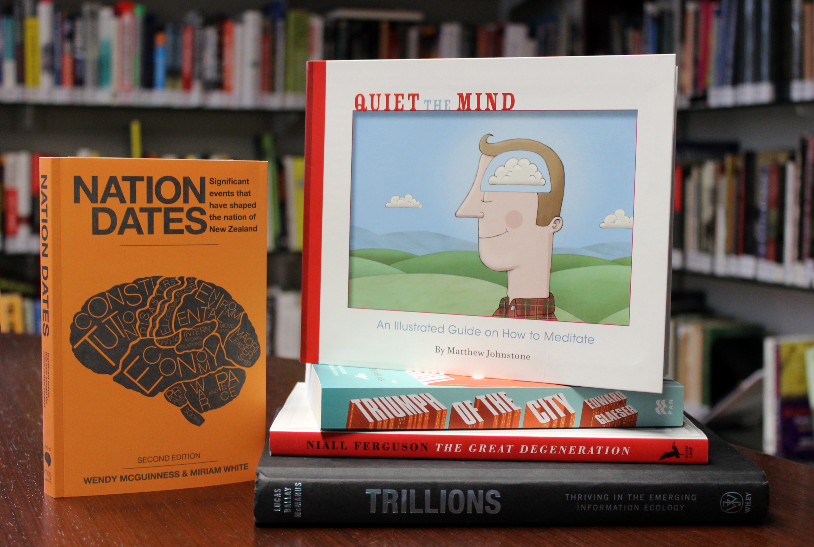We have really enjoyed the annual Summer Reading List for the Prime Minister released by Australian think tank, the Grattan Institute – so much so that we have decided to emulate their model across the ditch.
We have designed this list to capture key issues that we think will be important for New Zealand in 2013. We hope they will also be enjoyable and insightful summer reads for our Prime Minister, or any New Zealander for that matter.
1. Niall Ferguson – The Great Degeneration: How institutions decay and economies die
Ferguson’s latest book discusses the decline of the West and the deterioration of the four pillars of Western societies: (1) representative government, (2) the free market, (3) the rule of law, and (4) civil society. The Great Degeneration may not be the most uplifting read on our list, but Ferguson is a master of narrative, and his style is considered and thought-provoking. With the Treasury’s next Statement on New Zealand’s Long-term Fiscal Position due for publication in mid-2013, this book provides valuable context going into next year.
2. Peter Lucas, Joe Ballay, and Mickey McManus – Trillions: Thriving in the emerging information ecology
This is a fascinating and beautiful book written by three designers from a leading US technology research company. Trillions describes itself as a ‘field guide to the future’. It surveys how we have got to where we are now, how the principles of human-centered design can guide us into the next major information revolution, and the risks and opportunities for the future. As the authors point out, there are currently more microprocessors on the planet than humans. Issues relating to ‘big data’, and the relationship between information and technology, are becoming increasingly hot issues for public policy debate both in New Zealand and the rest of the world. The Institute is planning more work in this area in 2013 with the continuation of our ‘Data Matters’ project.
3. Edward Glaeser – Triumph of the City: How urban spaces make us human
In Triumph of the City, urban economist Edward Glaeser travels through history and around the globe to reveal the hidden workings of cities and how they bring out the best in humankind. Understanding what makes resilient cities that work for people is more important for a New Zealand Prime Minister than ever before. The Christchurch rebuild, the ongoing debate around the Auckland ‘super city’, and the proposals to create a second ‘super city’ in Wellington, are all major issues set to dominate public debate in 2013.
4. Wendy McGuinness and Miriam White – Nation Dates: Significant events that have shaped the nation of New Zealand
We might be a little biased on this one, but we think Nation Dates is a fantastic resource for the Prime Minster, particularly in the context of the ongoing constitutional review. Understanding the historical development of New Zealand as a nation provides crucial context for moving forward. Nation Dates can be read both chronologically or thematically by ‘thread’, and the recently released second edition includes a fold out cover with a graphic visualisation of the book’s ‘historical threads’.
5. Matthew Johnstone – Quiet the Mind: An illustrated guide on how to meditate
We think next year will be a noisy one. Among all this noise, New Zealand will need the Prime Minster to step back and take a long-term view. This little book (its cover nicely juxtaposed with Nation Dates) has lots of brilliant illustrations demonstrating how to give our brains a break.
We would also like to add to this list the outputs of two workshops we have run this year. The Draft Constitution published in August by the 50 young people who attended the EmpowerNZ workshop, and the Youth Statement on the Long-term Fiscal Position published this week by the 27 young people who attended the LongTermNZ workshop. Things are changing so fast, and as critical decisions about this nation’s future are made, we believe it is important that youth have a powerful voice in these conversations.
Special thanks to Unity Books for helping us with choosing this years selection.
Merry Christmas and happy New Year from everyone at the McGuinness Institute. We wish you all a safe and sunny holiday break. We are all taking a well deserved break, but will be back in the office on the 14th of January.
All the best,
Wendy and the team.

